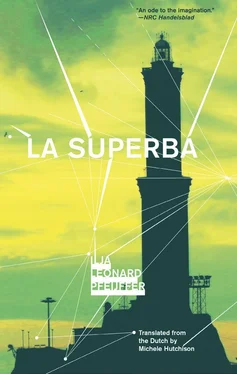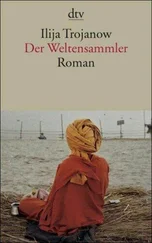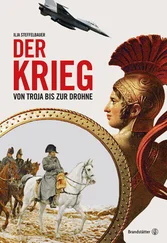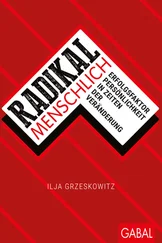6.
“It’s difficult to describe Agadez. In some ways, it’s a beautiful town. Or in any case, it once was. It’s one of the few places in Africa where history is tangible. A lot of tourists used to come, they told me. But the town fell into the hands of petty criminals, Touareg rebels and dubious characters with links to Al Qaeda, and fell into decline. The tourists no longer come. Instead, the city is flooded with emigrants like me. The town stands at the crossroads of various routes to the Promised Land. They arrive from all four corners of Africa, not just from Senegal but also from Sierra Leone, Ghana, Nigeria, Cameroon, Chad, and more. The two most important routes to the north start at Agadez: the one via Tamanrasset in Algeria to the Spanish enclave Mellila or to the Tunisian coast, and the one to Libya. Agadez has always been a smugglers’ den. Its inhabitants know the mountains of the border area with Algeria and Libya like the back of their hands. They used to smuggle cigarettes and weapons. Now it’s black men. ‘And that’s better business,’ one of the many smugglers I met there said. ‘Cigarettes and weapons don’t have legs.’
“Most emigrants are completely broke when they arrive in Agadez. They’re put up in the Ghetto, where dozens sleep in rows on the floors of unfurnished sheds or in enclosed yards. In total, there are tens of thousands of penniless black men in that small area of the town, continuously. There’s no running water. The sanitary conditions are awful. Many suffer from malaria. There are regular outbreaks of other illnesses. They told me it was better a few years ago because there were western aid workers in Agadez, but the town became too dangerous for them, too. And most of the emigrants are forced to stay because they don’t have any money for the second half of their journey. They try to find work. I spoke to a couple of men from my home country who’d been there for longer than a year.
“Compared to them, I was a privileged person. I still had some money left from my friends and family, and in theory it was enough to be able to continue directly on to Libya. But I had to operate carefully, that much was clear to me. To start with I had to try to avoid running into police officers. I was taken down to the station on my very first day in Agadez. I got away with a twenty-dollar fine. Later I found out I could thank my lucky stars.
“It wasn’t easy to find someone willing to smuggle me over the Libyan border. On the contrary, I was continuously pounced on by a wide array of figures with a wide array of arrangements, each more expensive than the other. I decided to spend a few dollars on a sleeping place in the Ghetto to give me time to gather information. The Ghetto was dirty but cheap and safe. The police didn’t go there because it was run by Mohammed, a Touareg whom everyone called the Boss.
“I spoke to as many of my countrymen as I could and all I heard were horror stories. A Nigerian had paid five hundred dollars to an Arab with a car who had promised to take him to Tamanrasset, but the Arab stopped at a police station, ran away with the money, and the man was locked up. The driver of a large truck had dumped eighty-five passengers in the desert. They’d all died of thirst. Another convoy had been ambushed by armed Touareg rebels. They’d forced everyone to undress, confiscated everything of value, and taken six Senegalese and three Nigerian women into the desert. There were army checkpoints all over the place. And Niger’s northern border was littered with landmines. It was important to find a driver who actually knew the area. But they cost more. And the Ténéré desert was merciless. Travelers often died of simple thirst on the road because they hadn’t bought enough water before they left, which was understandable because a five-liter jerry can of water cost six dollars in Agadez.”
7.
“This story’s making me thirsty. I did warn you. Will you order me another beer?”
“It’s making me thirsty, too.”
“That doesn’t interest me.” Djiby began to laugh. “If you’re writing a story about thirst, you’re not interested in whether it makes your readers thirsty, too, are you?”
“Actually I am, Djiby. To be honest, that’s the only thing that interests me.”
“Maybe you’re right. Cheers, then. Here’s to your thirsty readers. So I’m doing a good job?”
“Spectacular. I don’t need to do anything to it.”
“Ha ha ha. I’m only telling it like it was. The truth.”
“Carry on, Djiby.”
“Alright. The next day I decided to give it a go. I went through the Boss, Mohammed, the Touareg. He put me in contact with a tchagga . That’s what they call the human traffickers in Agadez. This one was a friend of his. That made him more expensive but it seemed to me that a friend of the Boss’s would be trustworthy at least. I was sorely mistaken.
“He charged three hundred and fifty dollars for the journey to Sabha in Libya, which was about sixteen hundred kilometers away. I managed to get him down to three hundred. Twenty of us set off in the back of his four-wheel drive pickup. He took us to a cabin, thirty kilometers to the north of Agadez. He picked us up again the next evening. We drove northwards in the dark. We were about seventy kilometers from the border when the engine began to splutter and then stopped. He said we were out of gasoline and that he’d go fetch some. We were near a village, he said. It wasn’t far. But perhaps we could contribute something. He got together around two hundred dollars and went off. It was too dangerous to go with him, he said, because of all the checkpoints.
“When he hadn’t returned by sunrise, we realized he was never coming back. We decided to continue on foot. But after two days without food or drink we realized it was pointless. A trade convoy from the north passed us on the road we were walking along. They offered to take us back to Agadez. We said we didn’t have any money and needed to go north. They said we shouldn’t be so stupid, we’d die if we did that, we should get in immediately and we didn’t have to pay anything. Four of the group decided to carry on, despite their warnings. I was taken back to Agadez along with fifteen others.”
8.
“But then I was just as broke as all the rest of them. And I couldn’t even go and punch Mohammed the Touareg for his friend’s betrayal because I needed his protection and his contacts even more than ever.
“I had to find work. I got myself various insignificant jobs that paid practically nothing. And there, too, I was conned and ripped off many times, but that’s only logical and I don’t need to bore you with that. But I became more clever and more wily. I learned to think like them, however much I hated their way of thinking. I ended up in Agadez for just under six months. Damned city. Then I’d earned enough to have another go.
“This time we traveled in a large truck. More than ninety blacks in an open flatbed. That was cheaper. One hundred and fifty dollars per person. And it also felt safer because there were so many of us. The jerry cans full of water dangled from either side of the truck. And we only fit in if everybody stood. There’s wasn’t enough space to sit or lie down. We slept upright, sandwiched between others who may or may not be sleeping, so we hardly slept. Anyone on the outside had to take extra care not to be accidentally pushed overboard by the sleeping people leaning on them.
“At a certain point, the driver drove off the road to avoid a checkpoint. And then it happened. We drove over a landmine. It exploded at the front right corner of the truck. Luckily it was a small one and luckily I was at the back on the left. I was alright. But there were maybe seven dead and a few wounded. And maybe even worse was that we had a flat tire.
Читать дальше












